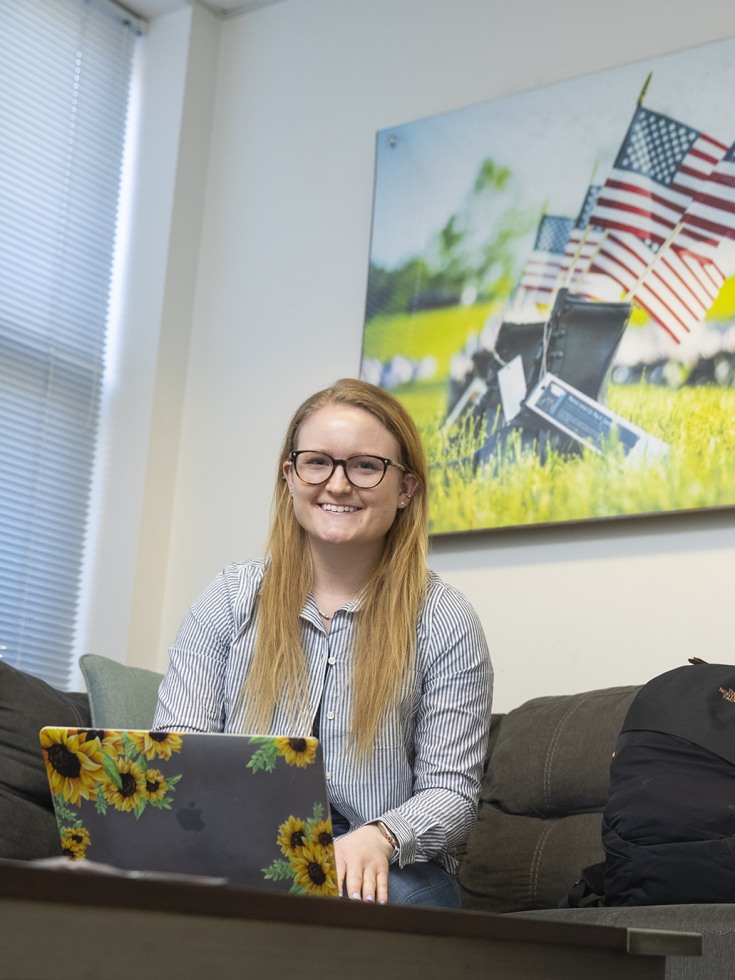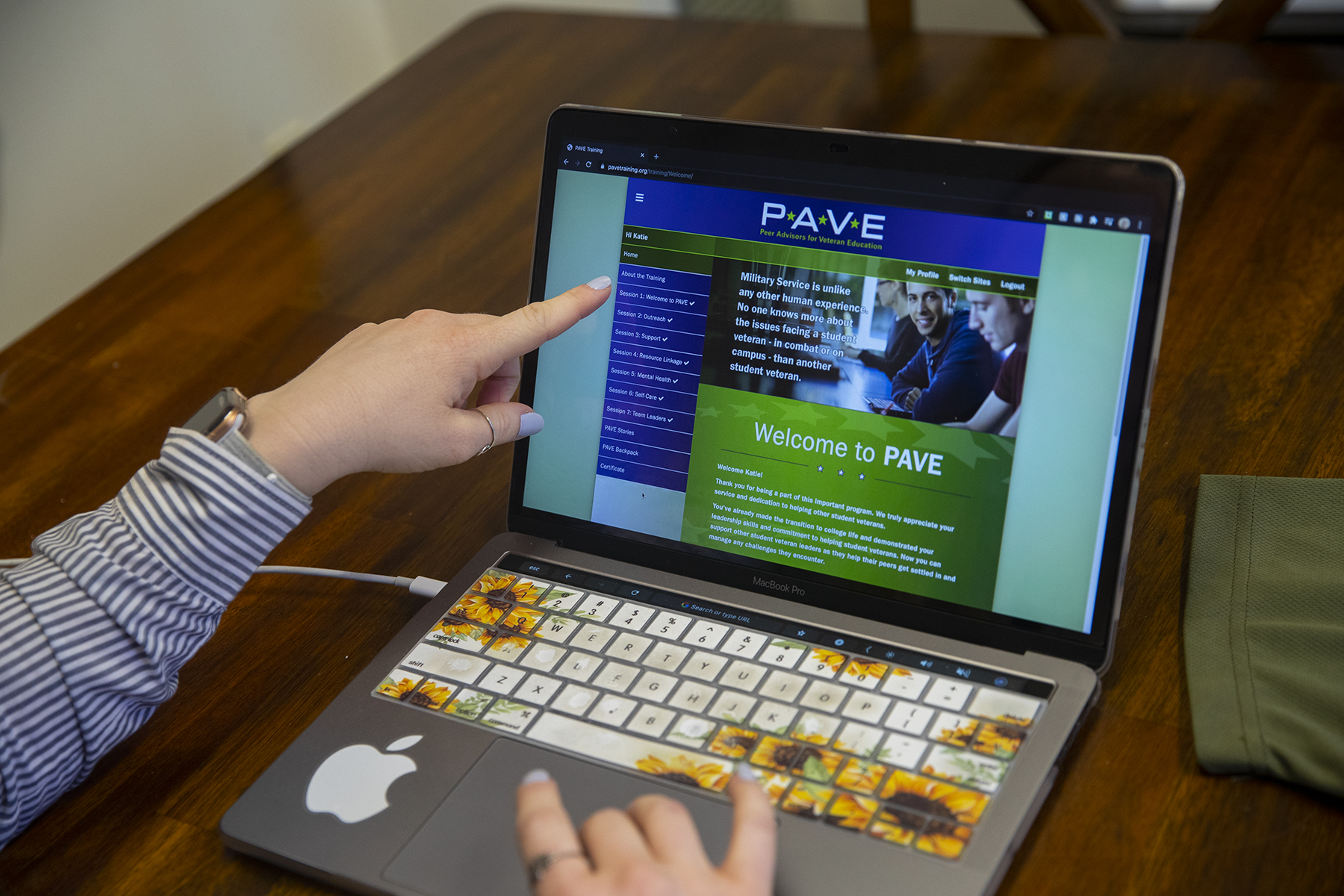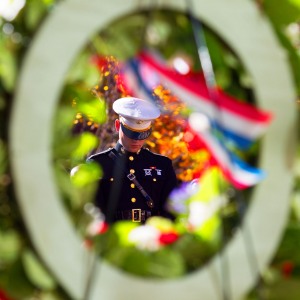PROVIDENCE, R.I. [Brown University] — Katie Yetter was a first-year high school student when she initially imagined herself as a U.S. Marine.
Her sister’s friend — a pilot for the Corps — took her on a tour of Marine Corps Air Station Miramar in San Diego, even letting her sit in the pilot seat of his Bell Boeing V-22 Osprey, an aircraft often used for special operations missions that combines the speed of an airplane with the vertical liftoff and landing capabilities of a helicopter.
“I sat in that seat and had this moment where I thought, ‘This is what I want to do, this is so fascinating, this is unlike any job I could ever imagine,’” said Yetter, who is now a junior cognitive neuroscience and sociology concentrator at Brown.
Three years later, Yetter joined the Marine Corps, where she served for five years as a safety equipment mechanic for the F-35B, a fighter aircraft. But Yetter had also long dreamed of a college education, and — after several years balancing her military service with college coursework — she decided to pursue her bachelor’s degree full-time.
“I knew I wanted to attend college full-time — both for the experience and to be able to explore different academic subjects, which was really hard for me to do taking one class at a time,” she said. With her military supervisor’s support and encouragement, Yetter applied to Brown.
Now that Yetter is at the University, she is working to deepen relationships between military and civilian spheres as a peer mentor, program coordinator and researcher. Her work comes at a critical time: Just over a year ago, Brown launched a plan to double the number of U.S. military veterans enrolled as undergraduates by 2024. In the first admissions cycle since the plan launched, the overall population of student veterans on campus increased by 24%, from 21 to 26 in total, with 15 student veterans in this new first-year class alone.
“Whether it’s through a movie or a news article, there are a lot of labels that have been placed on veterans, some positive, but also some negative,” she said. “I am doing everything I can to educate the whole community about what it means to have served and why it is so important to me and my fellow veterans.”


